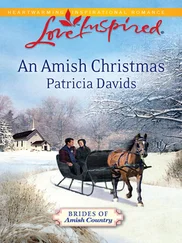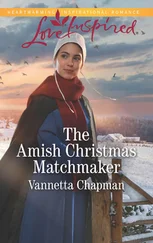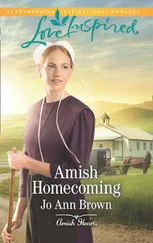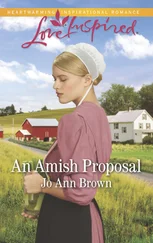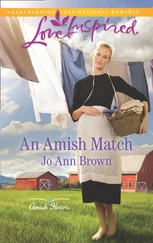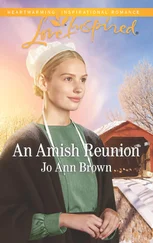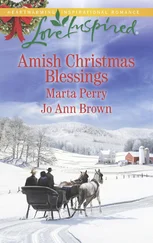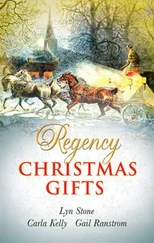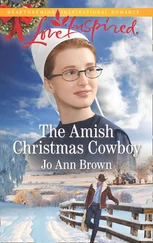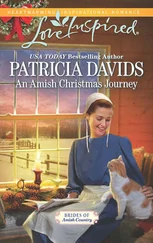Before they could tease him further, Michael began talking about the orientation session they were required to attend after breakfast. He didn’t give either man a chance to change the subject, but he wondered why he’d bothered when he saw the grins they wore as they ate. He wasn’t fooling anyone, not even himself. He looked forward to getting to know Carolyn better, but that’s where he’d have to draw the line.
She was involved in her Mennonite congregation, and he had no idea if he intended to remain Amish. She didn’t need to have him dump his mess of a life on her when she was trying to rebuild everything that had been lost.

She was a total mess.
But so was everyone else in Evergreen Corners.
Carolyn laughed as she thought of how Gladys Whittaker, their mayor, never used to appear in public without every hair in place. Since the flood, mud on her face seemed to be the mayor’s favorite fashion accessory. Elton Hershey had had stains on his pants when he gave the sermon on Sunday. Nobody had complained about their kindhearted pastor, because everyone was fighting to get rid of mud from their clothing, too.
She squatted by the brook that had changed course. There was talk that the water would be forced back into its proper channel, but it was a low priority while people needed places to live.
Washing mud off her hands, Carolyn winced as her back reminded her of the hard work she’d done. She’d joined five others cleaning out a house that had been inundated. Once they’d gotten the mud off the floors, they spent hours removing soaked drywall before mold could grow inside the walls. She’d carried the heavy pieces of wet plaster to a pile in the yard while someone else had sprayed the two-by-fours with a mold killer.
Her hands ached as well as her elbows, shoulders and back. It’d be quicker to count the muscles that didn’t hurt. Taking care of two children and raising chickens and baking hadn’t prepared her for such physical work.
Hearing the flap-flap sound of a helicopter, Carolyn glanced up. It was rising from the football field behind the school. She wondered what had been delivered. She hoped fresh milk. The children were complaining about the taste of powdered milk. There were a half-dozen dairy farms on the other side of the ridge, but no way to get to them. Too many roads and bridges had been destroyed, and what would have been a ten minute drive before the flood now took hours.
She stood, holding her hands against her lower back to silence the protest from her muscles. When she saw four chickens pecking at the ground, she smiled. Mr. Aiken had told them to feel free to use whatever they found in the barn. She’d seen a bucket of corn by one stall. A couple of handfuls might draw the chickens back. That would ease the children’s distress.
What Kevin and Rose Anne needed was a home. Their house hadn’t been big, and most of the ancient mechanicals had needed attention she didn’t know how to give. She and the children had become accustomed to faucets dripping. She’d locked off the back bedroom, fearful Kevin and Rose Anne would tumble through weak boards into the cellar. Now, the cellar hole was the sole remnant of the comfortable old house.
Seeing some broken boards heaped against stones at the brook’s edge, Carolyn went to pull them out of the water, one by one. If nobody else claimed them, she could use them to build a new chicken coop.
“For all I know, Father,” she said as she dropped another board on top of the two she’d pulled out, “these are what’s left of my old coop. But I want them to go to whoever needs them most.”
A shadow slipped over her, and Carolyn looked skyward. Was it going to rain again? Panic gripped her throat, threatening to keep her from drawing another breath.
“Would you like some help?” came a deep voice.
She turned. Michael’s light-blue shirt and black suspenders weren’t as filthy as her dress and apron were, and she guessed he’d come from the volunteers’ orientation class. The sessions were simple, but outlined who was in charge of what and when someone should seek help before making a decision. They had ended the chaos of the first two days after the flood.
“I didn’t mean to startle you,” he said.
“You didn’t.”
“Something is upsetting you. I’ve seen more color in fresh snow than on your face.”
She let her sore shoulders relax. “Okay, you did scare me. I was deep in my thoughts.”
“This is all that’s left?” He looked down into the cellar hole. “There’s nothing but mud.”
“Everything washed away. The furnace, the water heater and the jars of fruits and vegetables I put up in August. I haven’t told the children yet. I know they aren’t going to be happy with grocery store canned vegetables.”
He wrinkled his nose. “Sometimes it seems you can’t tell the difference between the vegetables in the can and the can itself.”
“You’ve taken a bite out of a can?”
“Of course not.” He chuckled. “You don’t like exaggeration, ain’t so?”
She made sure her reaction to “ain’t so,” a common Amish term, wasn’t visible. “I’m a low-key person, Michael. I prefer to keep things simple.”
“And you’re exhausted.”
She resisted the yearning to check her reflection in the slow waters of the brook to see how bad she looked. “I guess that’s obvious.”
“Why wouldn’t you be tired? You were up early this morning to make breakfast for us, and now you’re taking care of your chickens.” His eyes narrowed as his gaze settled on the stack of wood. “Have you been pulling those out on your own?”
“I thought I could use the boards to build a chicken coop.”
“A gut idea.” Without another word, he waded into the water. He stretched out and grabbed a board beyond her reach.
Tears flooded Carolyn’s eyes as she watched him lift out the planks and set them with the others with an ease she couldn’t have copied. She blinked them away. She must be more exhausted than she’d guessed.
Five minutes later, the wood was stacked. She thanked him, but he waved aside her gratitude before bending to wash his hands in the brook as she had.
“What do you call this stream?” he asked as he straightened and wiped his hands on the sides of his black broadfall trousers.
“Washboard Brook.”
“Brook?” He shook his head, then pushed his brown hair back out of his eyes. “I never imagined anything called a brook could do all the damage this one has.”
“I didn’t, either. I don’t think anyone did.”
“You’ve never had a flood here before?”
“I’ve learned that if the snow up on the peaks melts really fast, we get some minor flooding. Puddles in yards and maybe a splash over onto the road where it’s low.” She flung out her hands. “Nothing like this.”
“Have you considered leaving?”
She shook her head. “No.”
“Not once?”
Wanting to be truthful—or at least partially because she couldn’t mention Leland’s name—rather than making believe she could endure anything nature could throw against the town, she said, “I’ve got to admit when I watched our home collapse and get sucked down into the water I wanted to run as fast as I could in any direction away from the flood.”
“But you’re still here.”
“It’s home.”
“So you grew up here?”
Carolyn berated herself. She should have seen the direction their conversation could go and changed the topic before it touched on dangerous territory.
Knowing she must not appear to hesitate, she said, “No, but I’ve lived here for a while. For me, Evergreen Corners is home, and I hope it always will be.”
Читать дальше


